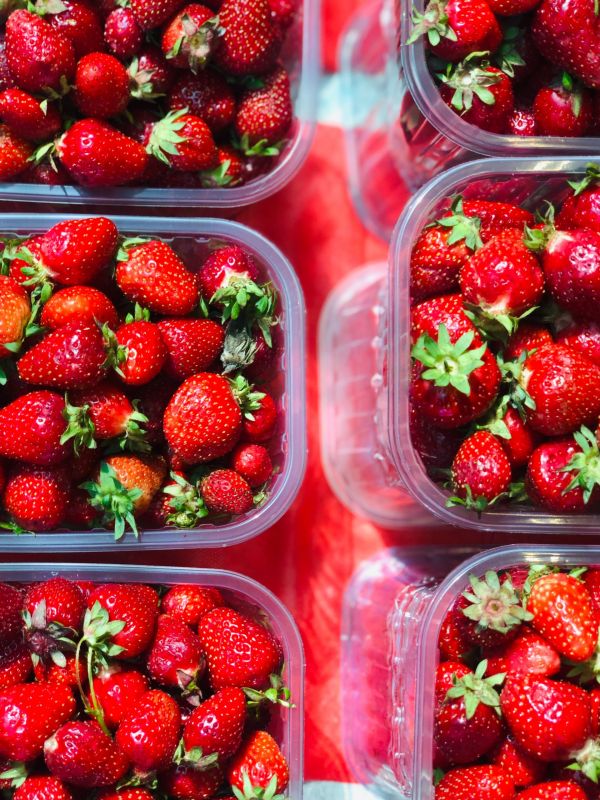Consumers want to bin the plastic packaging surcharge
In order to stop the ‘plastic soup’ from expanding at the rate it has been, the Dutch government has imposed a mandatory surcharge on consumers for disposable plastic packaging. From the 1st of July onwards, consumers have had to pay either € 0.25 extra for a non-reusable cup, € 0.50 for a meal that consists of one or more non-reusable plastic components, and € 0.05 for a small container with condiments (such as sauces). This surcharge applies when consumers buy plastic-packaged take-away meals, have food delivered, as well as ready-to-eat meals that can be bought in supermarkets.

We asked consumers in our online community what they thought of this new governmental measure. Discussions were lively but dominated by negativity. In short, the members of the community were angry, and not convinced that this monetary “punishment” would stimulate the rejection of disposable plastic.
However, with some improvements, the plastic surcharge measure may yet become succesful. Consumers must be aware of the measure and its consequences and need time to make new behaviours a habit. We’ve learned from previous studies that for a policy measure to be acceptable, people need to recognize that there is a problem to be solved and the measure needs to be ‘proportionate’ to that problem. In other words, it needs to be effective at solving the problem but also fair.
Consumers are aware of the plastic problem, but were not aware of the new measure
There was no debate on the negative consequences of plastic waste on the environment; participants generally believe that everyone should play a part in limiting single-use plastic. The few that were somewhat positive about this imposed measure therefore mentioned the urgency of the climate crisis and that any measure aiming to help the environment should be seen as a positive effort.
“Plastic is so incredibly bad for everything and everyone. the use of plastic really needs to be reduced or eliminated.” Hester, 53
“I find it somewhat excessive myself, but I do understand it. In the end it’s about the environment and therefore everyone now and in the future.” Peter, 32
However, many were unaware that this measure was taking effect. Lack of campaigns and communication from the government beforehand meant that consumers were mentally and physically unprepared and taken aback by the measure. With direct communication to consumers (through campaigns on social media for example), consumers can learn how to prepare to change their lifestyles in a gradual manner.
Without an alternative packaging solutions, the extra cost is an ineffective solution
In theory, this measure is meant to promote the use of re-usable plastic containers as an alternative to disposable plastic packaging. However, participants have said that they have often not been offered such alternatives in reality. Food businesses need to offer re-usable options to give consumers a choice. As long as consumers do not have a choice for an alternative packaging, this measure will not be effective.
“You can’t choose a plastic-free option as a consumer.” Layla, 35
While consumers are urged to bring their own re-usable packaging options, this does take more effort and planning from consumers. Like with re-usable cloth bags instead of plastic bags, consumers need time to get used to the idea, and it will take time before it becomes a habit to bring their own re-usable options. In the meantime, campaigns can act as reminders for consumers, nudging them to not forget bringing their own reusable containers.
It is not fair for only consumers to pay up
At the same time the fact that the end-users bear the cost for plastic food packaging, at a time where prices have increased, is experienced as extremely unfair.
“The retail price already includes the plastic container or bag. Retailers should split the prices instead of raising what they like to do if there is even a possibility.” Claudia, 59
Participants also brought up how this new measure disproportionally disadvantages those with a lower income compared to those with a higher income. The surcharge on plastic packaged products can make certain food products unattainable for some, whilst others may not even bat an eye at the price difference and continue to consume the same products and amount of plastic as they did before.
“The idea is good the execution is very poor. I understand that we need to reduce plastic, but people really won’t let that 25 cents stop them.” Ruud, 33
Lack of transparency about additional fee
Currently certain supermarkets do not always declare the extra cost for plastic separately on the receipt. This makes the extra cost untransparent. Participants mention that they can’t tell for which products they have to pay more for plastic and for which they do not.
At the same time, what happens with the extra income is unclear. The participants feel like retailers now have a valid excuse from the government to increase their product prices further, enabling retailers to disadvantage consumers even more, while also believing that retailers are the sole benefactors of the imposed measure.
“Personally I think it’s just another way to generate extra revenue, impose extra costs on the consumer.” Liza, 27
Some participants believe that it is extra profit for manufacturers.
“In addition, all the money earned from the extra plastic surcharge is all pocketed by the manufacturer.” Ruud, 33
Idea for improvement: exceptions for healthy options and investment in development of alternative materials
Participants suggested that this tax should not be added to all foods indiscriminately and that healthy foods should be exempt. For example, pre-cut and packaged vegetables, which are much more convenient and need less to no preparation, are a low-barrier way for time-poor consumers to eat healthily. Participants believe that people should not be discouraged to make this choice, and an exemption will stimulate people to opt for the healthier choice.
“Mandatory reusable options and bring your own stuff, fine. But I’ve also already seen supermarket warnings that prepackaged food you can consume right away (like sliced fruit) also costs extra, and there are no alternatives to that.” Micha, 42
Participants also questioned why the government does not push retailers, businesses, or the producers of food packaging, to produce and sell products with non-plastic food packaging. Participants feel that incentives are needed closer to the beginning of the food supply chain to promote the production of more innovative materials that are less damaging to the environment.
Unwanted consequences
The surcharge is seen as a punishment that is ineffective in the larger picture as well as unfair, particularly to consumers with a tighter budget. As long as no real alternative is offered to single-use plastic packaging, consumers feel that they are being cheated by the system.
Find out more
Contact us to find out more about the results, or how we can tailor consumer insights to your product or company.
We believe that understanding consumers is key to making the food system more sustainable. Successful innovation and impactful communication require a solid foundation of consumer insight.
We are the insights partner of choice for food companies and non-profits that aim to have a positive impact on society and our planet. Together we empower consumers to make food choices that are good for them as well as for the planet.
The Hague Tech - Wilhelmina van Pruisenweg 35 - 2595AN - The Hague
(+31) (0)70 2042314 - Info@futureoffood.institute
Contact
Fill in this form and we'll be in touch shortly!
Newsletter
Do you want to receive a monthly dose of insights, opinions and events? Please subscribe to our newsletter.









